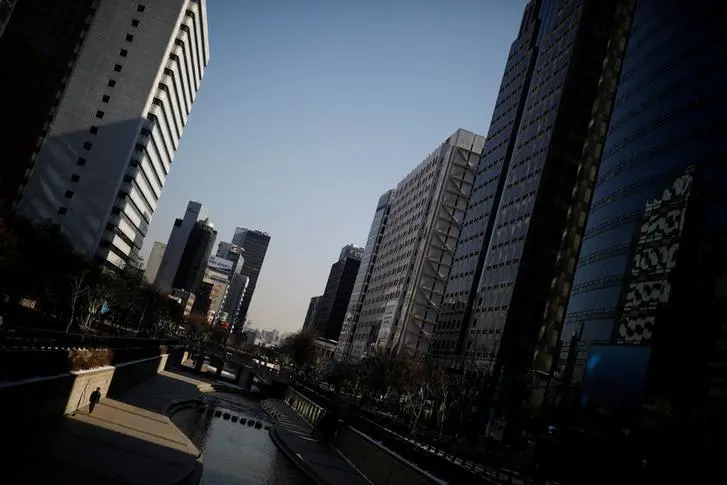PHOTO
The head of South Korea's market watchdog said on Thursday authorities will normalise liquidity rules imposed on local banks as part of a gradual exit from regulatory easing on capital requirements imposed during the pandemic.
"The rules will be normalised as scheduled," Lee Bok-hyun, governor of the Financial Supervisory Service, told a news conference, when asked if authorities will begin normalising rules for banks' liquidity coverage ratio (LCR).
Capital requirements on South Korean banks were eased during the COVID-19 pandemic and this was extended through to June this year after the default of a local developer in 2022 caused market jitters.
Normalising the LCR, currently at 95%, would be a vote of confidence in South Korea's financial stability. Lee did not comment on the specific timing or the extent of normalisation beyond specifying it would be as scheduled.
In a rare news conference with foreign media, Lee also said the planned introduction of a tax on capital gains from investment income was not ideal as it would increase the tax burden for investors and risk thinning liquidity in local financial markets.
"If the legislature pushes ahead to introduce the capital gains tax, it will be up to them, but it seems that isn't the right move now," Lee said.
The administration of President Yoon Suk Yeol has pledged to scrap the planned capital gains taxes on income exceeding 50 million won ($36,550) from stock investments, in a bid to boost investor sentiment and stock values.
The government in 2022 decided to delay the introduction of the financial investment income tax by two years. The tax is due to kick in from 2025 unless the National Assembly scraps the planned imposition.
Lee did not elaborate when asked if a ban on short selling of stocks in the domestic market, due to expire at the end of June this year, would be extended. (Reporting by Cynthia Kim Editing by Ed Davies)





















